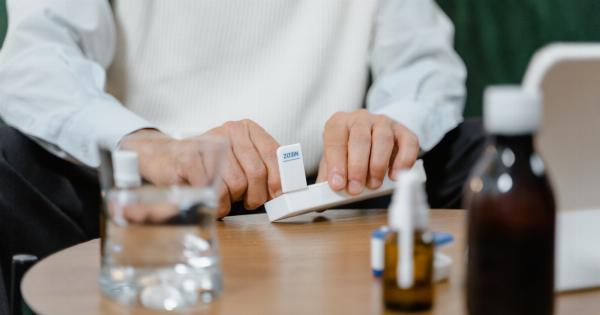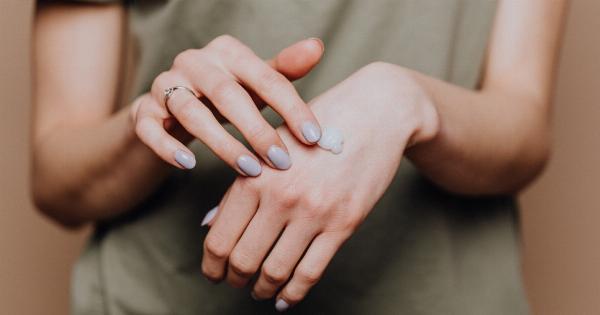Hemorrhoids, also known as piles, is a common condition that affects millions of people worldwide. It is characterized by swollen and inflamed veins in the anus and lower rectum, which can cause discomfort, pain, and bleeding.
Hemorrhoids can be caused by various factors, including constipation, pregnancy, obesity, and aging. Fortunately, there are many ways to manage and treat hemorrhoids. In this article, we will discuss some of the effective ways to get rid of hemorrhoids.
1. Increase your fiber intake
Fiber is a crucial nutrient that helps keep the digestive system healthy and prevents constipation. Constipation can lead to hemorrhoids, as straining during bowel movements can put pressure on the veins in the anal area.
To prevent hemorrhoids, it is recommended to consume at least 25-30 grams of fiber per day. Good sources of fiber include whole grains, fruits, vegetables, beans, and nuts.
2. Drink plenty of water
Drinking enough water is essential for keeping the stools soft and preventing constipation. It is recommended to drink at least 8-10 glasses of water a day. Other fluids, such as unsweetened fruit juices and herbal teas, can also contribute to hydration.
3. Exercise regularly
Regular exercise can improve bowel movements and prevent constipation. Exercise can also help reduce weight, which is a risk factor for hemorrhoids. Activities such as walking, cycling, and swimming are all good options for improving bowel health.
4. Take sitz baths
Sitz baths involve sitting in warm water for 10-15 minutes a few times a day. This can help reduce inflammation and soothe the anal area. Adding Epsom salts or essential oils such as lavender or chamomile can enhance the relaxation and healing benefits.
5. Use topical treatments
Topical treatments can provide relief from the symptoms of hemorrhoids. They include creams, ointments, and suppositories, which contain ingredients such as witch hazel, hydrocortisone, or lidocaine.
Some topical treatments also contain natural ingredients such as aloe vera and coconut oil, which can soothe and moisturize the skin.
6. Try non-surgical procedures
If the hemorrhoids are more severe, non-surgical procedures may be necessary. These include rubber band ligation, which involves placing a small rubber band around the base of the hemorrhoid to cut off blood supply.
The hemorrhoid will then shrink and fall off within a few days. Another procedure is sclerotherapy, which involves injecting a chemical solution into the veins to shrink and harden the hemorrhoid.
7. Consider surgery
If other treatments are not effective, surgery may be necessary to remove the hemorrhoid. Hemorrhoidectomy is a surgical procedure that involves removing the hemorrhoid tissue.
This surgery is usually done under general anesthesia and requires a period of recovery and rest.
8. Preventative measures
To prevent hemorrhoids from occurring or recurring, it is important to maintain good bowel habits. This includes avoiding straining during bowel movements, using the toilet as soon as you feel the urge, and not holding in stools.
It is also important to maintain a healthy weight, exercise regularly, and drink plenty of fluids.
9. When to see a doctor
If you experience persistent bleeding, severe pain, or if the hemorrhoid does not go away on its own, it is important to see a doctor. They can perform a physical exam, discuss your symptoms, and recommend the appropriate course of treatment.
10. Conclusion
Hemorrhoids can be a painful and uncomfortable condition, but there are many ways to manage and treat it. By following a healthy diet, exercising regularly, and using topical treatments or non-surgical procedures, hemorrhoids can be effectively treated.
It is also important to maintain good bowel habits and seek medical treatment if symptoms persist.































